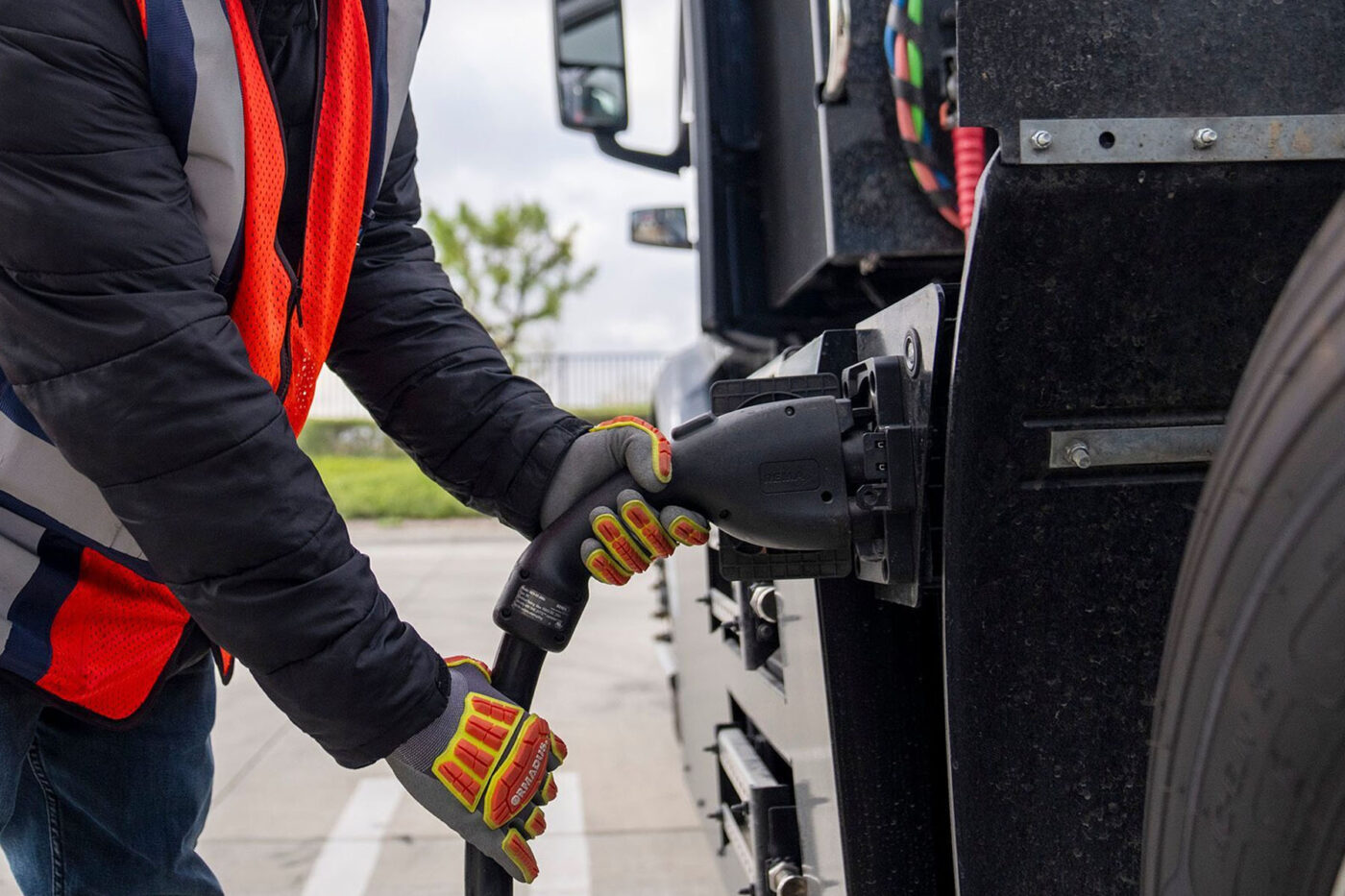PEM tests route planning for electric trucks in Germany
The battery-electric truck being used for the pilot phase will be tested on the road in everyday operation by Aachen-based logistics company Hammer. According to PEM, the specially developed software on board the vehicle “ensures safe route planning”. This takes into account the current range and available charging points, for example.
“DRivE” stands for “Data-based route planning in road freight transport with various energy supply technologies” and will continue until the end of 2024 to look at how companies in the logistics sector can be helped digitally to switch to environmentally friendly heavy goods vehicles in long-distance transport. One element of this is route planning with charging stops. Although this is already known in essence from electric cars, a number of criteria need to be added for electric trucks such as sufficient charging power and room to park trucks next to the charging stations.
In the pilot phase that has now started, PEM and its partners want to demonstrate that “such a solution works reliably in principle”, according to the University. On the other hand, the practical test is intended to uncover “any gaps in the programming that still need to be closed”.
In addition to PEM and Hammer Road Cargo, Maintrans Internationale Spedition, Mansio GmbH, ZeKju GmbH, FIR e.V. at RWTH Aachen University and the company Park Your Truck GmbH are also involved in “DRivE”. The latter recently put the first charging park into operation on one of the company’s own truck parking lots under the Charge your Truck label. The project is funded by the German Federal Ministry for Digital and Transport, BMDV.
“Our aim is to make the use of trucks with sustainable drive concepts more attractive by enabling them to cover their routes safely and well planned in advance with the help of digitalisation,” says PEM Director Professor Achim Kampker.
“If the climate targets are to be achieved, long-distance journeys must also be completed with alternative drives,” says PEM’s project manager Maximilian Bayerlein: “In the transport business, this has so far been hampered by the lack of transparency of available charging and refuelling infrastructure – and the associated concern about detours or waiting times.” A new routing algorithm is therefore intended to increase the planning reliability of transport companies and thus encourage companies to invest in environmentally friendly drive technologies.





0 Comments